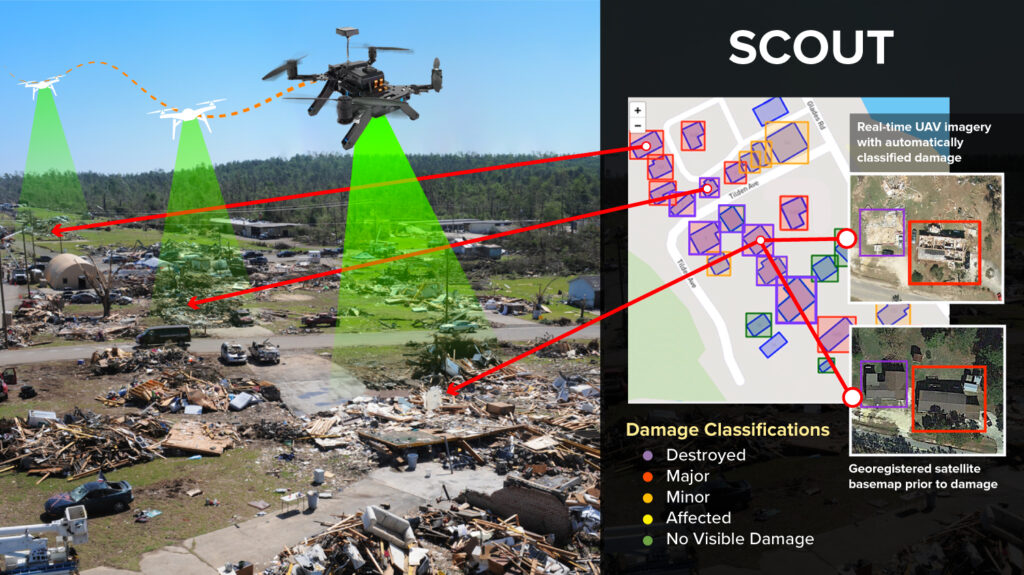SCOUT
A system to detect and characterize natural disaster damage
Semi-autonomous Capabilities for the Operation of Uncrewed Teams (SCOUT)
SCOUT effectively detects and characterizes damage from events such as tornadoes, forest fires, hurricanes, and flooding. SCOUT is designed as a modular kit of autonomy software and commercial, off-the-shelf sensors that can be easily configured to support a wide range of missions. SCOUT is a package of algorithms, swarm control software, and smart sensors. SCOUT’s detection algorithms work with electro-optical, multi-spectral, and infrared imagery.
“In the aftermath of a natural disaster, time is of the essence. SCOUT saves critical time when assessing disaster relief needs. With SCOUT, disaster response teams with minimal UAS training or experience will easily deploy UAS for information gathering and critical lifesaving operations.”

Daniel Stouch,
Director of Space and Airborne Systems and Principal Investigator for the SCOUT effort
NOAA’s Weather-Ready Nation initiative aims to reduce the impact of weather, water, and climate events by transforming the way humans receive and act on information. Key to this vision is using uncrewed aircraft systems (UAS) for a multitude of missions, including weather forecasting, assessing weather damage, and search and rescue. Current UAS missions rely on teams of human operators, planners, and analysts that are in short supply during response operations. The SCOUT effort aims to support response teams by improving the speed, accuracy, and efficiency of these efforts through enhanced autonomy capabilities.
SCOUT builds on the company’s prior work in AI-based autonomy for defense applications, enabling accurate and fast detection of objects of interest for relief efforts without draining scarce first responder resources.
Contact us to learn more about SCOUT and our other anomaly detection and classification capabilities.
This work was funded by NOAA, U.S. Department Commerce under award NA20OAR0210325. The statements, findings, conclusions, and recommendations are those of the author(s) and do not necessarily reflect the views of NOAA or the U.S. Department of Commerce.

